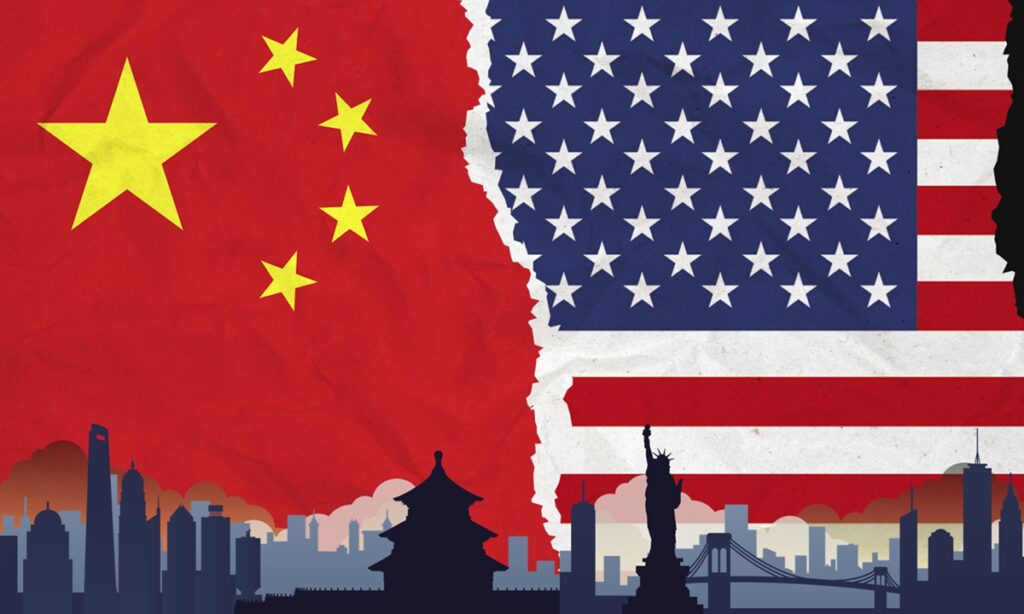The ongoing US-China trade war has intensified as China announced retaliatory tariffs on key American goods in response to the US imposing tariffs on all Chinese imports.

According to BBC News, the latest measures, already in motion, include a 15% import tax on US coal and liquefied natural gas (LNG) and a 10% tariff on crude oil, agricultural machinery, pickup trucks, and some sports cars.
While these tariffs primarily target the US economy, their ripple effects will be felt globally, particularly in Africa and Nigeria, which are heavily dependent on imported goods from both nations.
Africa and Nigeria: Caught in the Crossfire
1. Rising Costs of Imported Goods
Africa, including Nigeria, relies on Chinese imports for machinery, electronics, automobiles, textiles, and industrial equipment. With the US and China locked in a tariff war, production costs in China could increase due to higher input costs on raw materials from the US. This may lead to higher prices for finished goods, making imports more expensive for African countries. Nigeria, which heavily depends on Chinese machinery and consumer goods, could see a surge in inflation as businesses pass on additional costs to consumers.
2. Potential Fuel Price Volatility
China’s new tariffs on US crude oil and liquefied natural gas (LNG) could lead to a global energy price shift, affecting Nigeria’s oil-dependent economy. If China turns to other oil-exporting nations like Russia or the Middle East instead of the US, global oil demand patterns may change, impacting Nigeria’s crude oil exports. Furthermore, potential price fluctuations could make fuel imports more expensive, affecting the cost of petrol, diesel, and electricity generation in a country already struggling with energy challenges.
3. Weakened Trade Partnerships
The ongoing trade war could also impact Nigeria’s trade relationships with both the US and China. Nigeria is the largest economy in Africa, with China being one of its top trading partners. If tensions escalate, it could affect Chinese investments in Nigerian infrastructure projects, including railways, roads, and power plants. At the same time, US investors may become more cautious about doing business in Africa amid growing uncertainty in global trade policies.
4. Currency and Inflation Pressures
If global trade slows down due to tariffs, China’s demand for raw materials from Africa may drop, reducing Nigeria’s export revenue. This could weaken the Naira, making it more expensive to import goods, further driving up inflation. Nigeria’s already struggling economy could face additional pressure, making basic necessities even less affordable for the average citizen.
5. Impact on Technology and Telecommunications
China plays a major role in Africa’s telecommunications and technology sector, supplying everything from smartphones to 5G infrastructure. If Chinese companies experience economic strain from US tariffs, Nigeria and other African nations could see increased costs for mobile phones, internet services, and tech gadgets, impacting digital connectivity and access to affordable technology.
What Can Nigeria and Africa Do?
To mitigate the economic impact of the US-China trade war, Nigeria and other African countries must adopt strategic measures, including:
- Diversifying Import Sources: Reducing over-reliance on China and exploring trade partnerships with Europe, India, and other Asian markets.
- Boosting Local Manufacturing: Strengthening domestic industries to reduce dependence on imported goods, particularly in machinery, electronics, and consumer products.
- Enhancing Intra-African Trade: Leveraging the African Continental Free Trade Area (AfCFTA) to boost regional trade, reducing exposure to global trade wars.
- Strengthening Oil and Gas Policies Implementing policies that shield Nigeria’s petroleum sector from external shocks while investing in renewable energy alternatives.
- Encouraging Technology Development: supporting local innovation and tech startups to reduce dependency on Chinese telecommunications and electronics.
A Critical Moment for Africa
As China and the US continue their economic standoff, Africa, especially Nigeria, faces significant risks due to its reliance on imports, energy exports, and foreign investments. Without strategic economic adjustments, the rising costs of goods, fuel price fluctuations, and inflationary pressures could further strain an already struggling Nigerian economy.
With the right policies, however, Nigeria and Africa can turn this crisis into an opportunity focusing on self-sufficiency, industrialization, and stronger intra-African trade, reducing reliance on the world’s economic superpowers.

